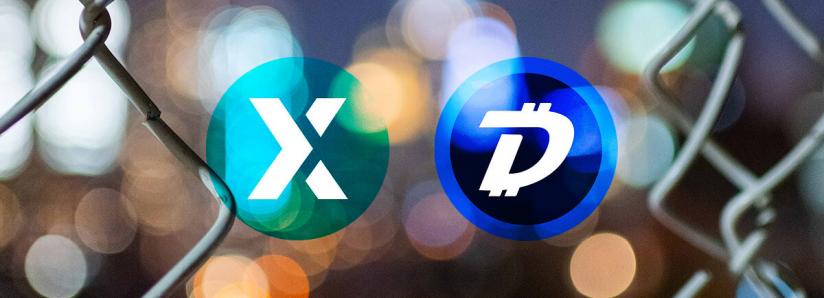Over the past few weeks, Jared Tate, the founder of popular blockchain network DigiByte and its native DGB cryptocurrency, has been waging a Twitter war against one individual: Justin Sun, founder of Tron, the blockchain behind currently twelfth-largest cryptocurrency TRX.
Tate’s quips started off relatively mild, calling Sun a “crook,” though, on the afternoon of Dec. 4, the prominent industry executive released a nine-part thread claiming that Tron is not as above-board as its proponents claim it to be.
Then, just like that, Poloniex, a popular altcoin-centric exchange reported to be closely entangled in Sun’s network, revealed its intent to drop DGB as a supported asset. The exchange claimed in a tweet that “after careful review, we decided DigiByte is not qualified for our listing standard.”
What DigiByte’s founder accused Tron of
So, what exactly did Tate say about Tron that triggered the blockchain project’s supporters so greatly?
Tate said a lot about Tron. Unnecessary nuance aside, Tate’s thesis on the blockchain is that it is a “100 percent premined and completely centralized network”; he looked to analysis from Brian Fabin Crain, CEO of Proof-of-Stake Blockchain service provider Chrous One, which stated that 56 percent of the voting power of the Tron network is in Binance’s control.
The DigiByte founder added that “Tron was the most blatant con job we saw after diving into hundreds of projects and blockchain protocols,” referencing his analysis of the industry for a book he was writing. Tate began an eight-part Twitter thread, by remarking:
This is not the DigiByte’s first time tussling with other crypto industry titans; Tate remarked earlier this year that the “‘Binance’” team demanded $300,000 and 3 percent of the total supply of DGB “for ‘insurance for their customers against blockchain hacks & defects’ to list DGB.”
Proof of this demand was not given as it was a “video call,” though Binance announced that it would start donating (and publicly announcing) all listing fees to charity.
Changpeng Zhao of Binance later responded to the tacit accusation, noting that he doesn’t want to “waste any time on these types of guys. There are more interesting things to do in life.”
Is Poloniex a Sun-owned enterprise?
In October, Circle, the Goldman Sachs-backed cryptocurrency giant, revealed that it would be ‘spinning out’ Poloniex, an exchange it then owned, into a new company. This move was made after the cryptocurrency scene in the U.S. was met with much regulatory pressure, leading Poloniex to delist an array of altcoins and move its headquarters to the relatively-lax Bermuda.
Of course, as Poloniex had lost support from Circle with this spin-off, it needed funding. And fast. So, this funding was found in an “Asian investment group,” according to a report from industry outlet The Block which cited employees of Circle. That led readers to ask “who’s in the investment group?” To that, The Block’s insiders responded a number of prominent Asian investors, the most notable and recognizable of which being Justin Sun.
Sun initially refuted the report, though by Nov. 12 quipped that he was one of the investors who acquired the trading platform in an official Poloniex livestream.
Since then, the exchange has listed TRX, acquired a decentralized exchange based on the Tron blockchain, made promotions with Tron branding, and even tweeted out a message urging its followers to purchase TRX as a collective. (The incriminating tweet has since been deleted.)

